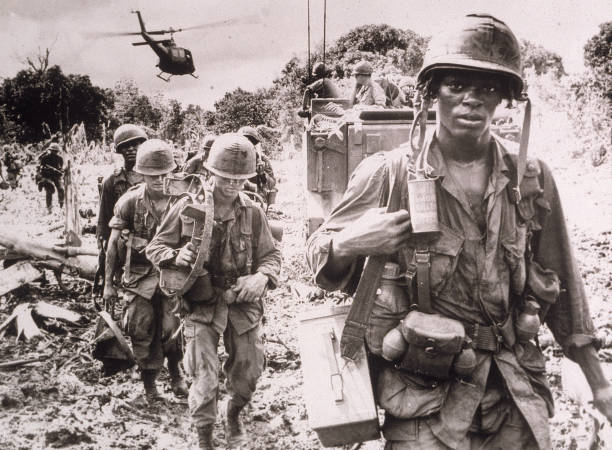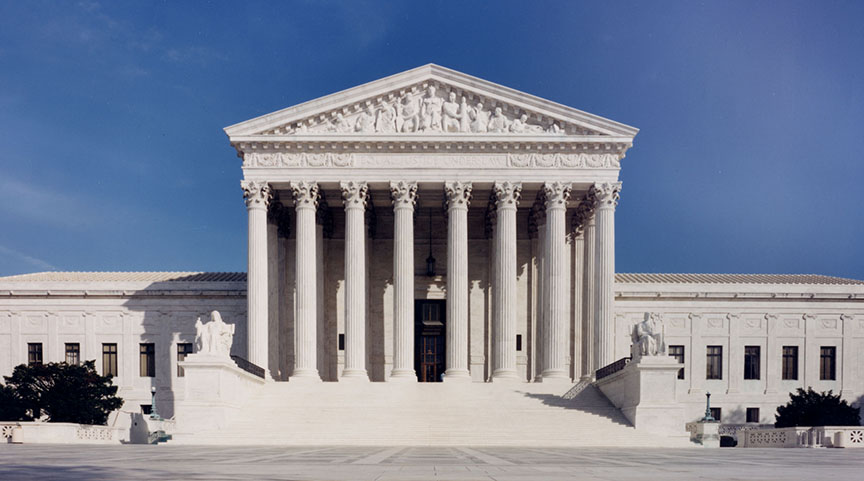(ThyBlackMan.com) The month of June 2022 was a historic one for women for two major reasons. First, the U.S. Supreme Court just overturned Roe v. Wade. Prior to that monumental decision, the right to an abortion was protected under the U.S. Constitution, which meant that state lawmakers couldn’t just ban the procedure if they wanted to. Now states have free rein to ban abortion, to restrict abortion and to regulate abortion. This has led to protests and reactions throughout the nation. Roe v. Wade is one of the landmark rulings that are most recognizable to U.S. citizens.
The second major reason the month of June 2022 was historic for women is that it marked the 50th anniversary of the enactment of Title IX. Title IX is an amendment that has had a tremendous impact on institutions throughout the country. While perhaps known more for its effect on athletic programs than academic programs, its importance cannot be understated. For over the past 50 years, Title IX has been in effect to level the playing field for women in relation to men in education programs. While African/Black women haven’t benefitted from Title IX like their white female counterparts, there are many numbers of African/Black women who have been influential in the arena of sports and athletics since Title IX was enacted on June 23, 1972. Here is a list of nine of those women (in alphabetical order):
–Simone Biles (gymnastics): One of the most successful Olympians of all-time, Biles redefined gymnastics to become the greatest gymnast of all time. She even has her own signature move! Biles showed even greater strength during the most recent Olympics while discussing her vulnerabilities publicly and the importance of mental health for athletes.
–Jackie Joyner-Kersee (track and field): Joyner-Kersee’s stardom in track and field made her must-see viewing during multiple Summer Olympic Games. Joyner-Kersee was not just a sprinter, she competed in the seven-event heptathlon and won three golds, a silver and two bronze medals over four separate Olympics. Her heptathlon performances may never be equaled.

–Cheryl Miller (basketball): While many of today’s women’s basketball fans tout Diana Taurasi as the greatest women’s basketball player of all-time, most basketball historians still look at Cheryl Miller as that titleholder. Of course, there was no WNBA that existed when Miller was a dominant force on the court during the 1980s in college. However, she was a four-time All-America and in 1986, Sports Illustrated named Cheryl Miller as the best male or female player in college basketball. Following her playing career, Miller became a basketball TV sportscaster and broke some barriers doing so. The Hall of Famer was arguably the first major women’s basketball star that African/Black women could look up to.
–Candace Parker (basketball): One of the faces of the WNBA for over a decade, Parker’s credentials are very impressive. It was not a surprise when she became the first woman on the cover of the most popular basketball video game on the planet. The first woman to win a McDonald’s High School All-American Slam Dunk contest, Candace Parker has lived up to the considerable hype that has followed her since her high school days.
–Laurel J. Richie (basketball): The WNBA celebrated its 25th anniversary last year as the most recognizable female team sports league in North America. The league has had plenty of highs and lows throughout its history but the talent of the league has certainly increased exponentially since its inception. The league’s first African/Black president was Laurel J. Richie, who was hired in 2011. Richie also made history as first person, male or female, of color to lead a major national professional sports league. During Richie’s four-year tenure as WNBA president, Richie led the league’s business, operations, and marketing initiatives. The increase in young WNBA talent during Richie’s tenure included the WNBA Draft being broadcast in prime time for the first time ever in 2013.
–Michele A. Roberts (basketball): Few African/Black women in sports history have held a position as important as Michele A. Roberts had. She was the executive director of the National Basketball Players Association from 2014 to January 2022. Roberts was elected as the first female executive director of a major sports union in July 2014. A trial lawyer by way of being a public defender, she earned high praise from NBA players for advocating for their value on and off the court as the league set marketing and ratings records over the past half-decade.
–C. Vivian Stringer (basketball): Over the past 40 years, C. Vivian Stringer has carried the torch as an African/Black woman head coach in women’s college basketball in which much of the sports best talent are African/Black women but few head coaches are. She has been a great example of leadership, confidence, and fearlessness. All those traits were on display during her coaching career that recently concluded as well as her handling of the despicable Don Imus incident that drew national headlines nearly two decades ago. There is a reason why Dawn Staley respects her so much.
–Serena Williams (tennis): She is arguably the greatest tennis player of all-time, male or female, and among the greatest and most accomplished athletes of all-time in any sport whether individual or team sports. She was able to destroy the tennis record books under the heavy weight of the double burden of racism and sexism. Serena Williams also brought her own flair, fierceness, and style to the tennis court and showed that athletes can still be all-time great and have outside interests like fashion.
-Venus Williams (tennis): While Serena has gotten more attention than her older sister Venus for quite some time now, it was Venus that began the Williams sisters’ decades long dominance in women’s sports. Beyond the social impact of being an African/Black woman in a sport that was unwelcoming and openly hostile to her style and herself, Venus impacted the sport as displayed in the 2013 documentary ‘Venus VS’ as she challenged the long-held practice of paying women tennis players less than their male counterparts at Wimbledon.
Staff Writer; Mark Hines
















Leave a Reply